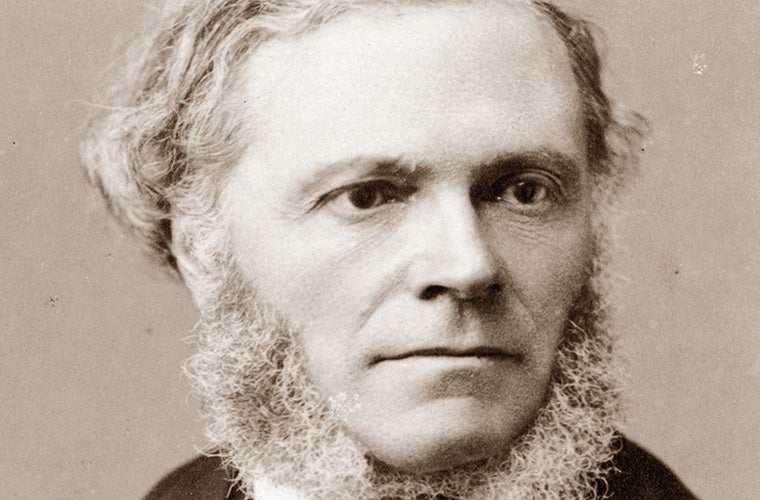
César Franck
1822–1890
Biography
César Franck was a composer, pianist, organist, and music teacher who worked in Paris during his adult life. In 1858 he became organist at Sainte-Clotilde, a position he retained for the rest of his life. He became professor at the Paris Conservatoire in 1872; he took French nationality, a requirement of the appointment. His pupils included Vincent d'Indy, Ernest Chausson, Louis Vierne, Charles Tournemire, Guillaume Lekeu and Henri Duparc. After acquiring the professorship Franck wrote several pieces that have entered the standard classical repertoire, including symphonic, chamber, and keyboard works.
Many of Franck's works employ "cyclic form," a method aspiring to achieve unity across multiple movements. This may be achieved by reminiscence, or recall, of an earlier thematic material into a later movement, or as in Franck's output where all of the principal themes of the work are generated from a germinal motif. The main melodic subjects, thus interrelated, are then recapitulated in the final movement. Franck's use of "cyclic form" is best illustrated by his Symphony in D minor (1888).
His music is often contrapuntally complex, using a harmonic language that is prototypically late Romantic, showing a great deal of influence from Franz Liszt and Richard Wagner. In his compositions, Franck showed a talent and a penchant for frequent, graceful modulations of key. Often these modulatory sequences, achieved through a pivot chord or through inflection of a melodic phrase, arrive at harmonically remote keys. Indeed, Franck's students report that his most frequent admonition was to always "modulate, modulate." Franck's modulatory style and his idiomatic method of inflecting melodic phrases are among his most recognizable traits.
Franck had huge hands, capable of spanning twelve white keys on the keyboard.[62] This allowed him unusual flexibility in voice-leading between internal parts in fugal composition, and in the size of the repeated chords which are a feature of much of his keyboard music. Of the Violin Sonata's writing it has been said: "Franck, blissfully apt to forget that not every musician's hands were as enormous as his own, littered the piano part (the last movement in particular) with major-tenth chords... most mere pianistic mortals ever since have been obligated to spread them in order to play them at all."
The key to his music may be found in his personality. His friends record that he was "a man of utmost humility, simplicity, reverence and industry." Louis Vierne, a pupil and later organist titulaire of Notre-Dame, wrote in his memoirs that Franck showed a "constant concern for the dignity of his art, for the nobility of his mission, and for the fervent sincerity of his sermon in sound." Joyous or melancholy, solemn or mystic, powerful or ethereal: Franck was all those at Sainte-Clotilde.
Image Credit: Pierre Petit, 1887